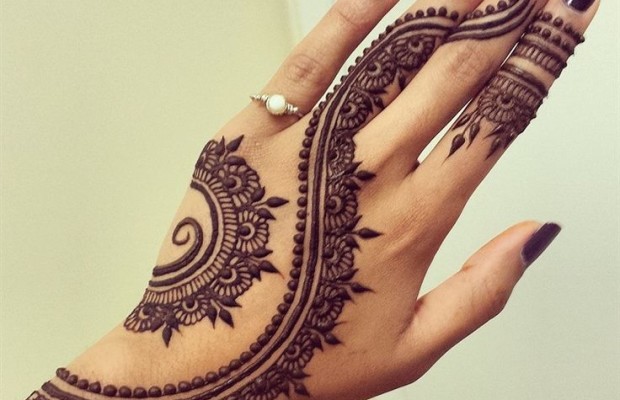Originally intended to cool Middle Eastern people off from the blazing sun, henna tattoos (or “mehndi”) have graced the hands of people all of the world for sacred and secular purposes.
Henna tattoos are created with a paste made of crushed-up leaves from the henna plant, which is grown in countries with hot, dry climates. It became a part of middle-eastern and african culture due to its location, and has spread around the world since then.
Henna plants, or Lawsonia inermis, contains a burnt orange dye which stains the skin. The darkness and hue of the stain varies, depending on the quality, room temperature, and the amount of time that the paste is left on the skin.
In the hot middle-eastern sun, henna is a great way to cool the skin. However, it became popular for people of this culture to adorn their skin with designs. Symbolism is very common in Islamic culture, and these decorations are no different. Some popular symbols are flowers, representing joy and happiness; lotus blossoms, representing the human soul; and paisleys, representing good luck and fortune.
Nowadays, it is still commonly used for decoration and adornment within Middle Eastern culture, but it is also used by many people as a classier version of a temporary tattoo. Henna tattoo stations can be found along boardwalks at touristy beaches, or in shopping malls and festivals.
Many forms of henna are secular, and have nothing to do with religion. People who get tattoos for enjoyment like to get floral designs, inspirational quotes, or symbols that represent what they believe in. Tribal markings are also popular, along with sports items.
People who use henna markings as a religious symbol have differing opinions about the secular trend that has arisen. Some think the trend is sacrilegious, while others think it’s flattering to see a cultural aspect so widely spread. Aniqa Islam, a common user of henna, uses henna for both symbolic and enjoyment purposes.
“It’s an awesome way to help develop self expression,” says Islam, “and it’s amazing to see so many people utilizing it for different purposes.”
Henna, or mendhi, is an amazing tradition that is versatile and beautiful. In the world today, there are millions of competing cultures, and some traditions are able to unite many of these cultures together.



















